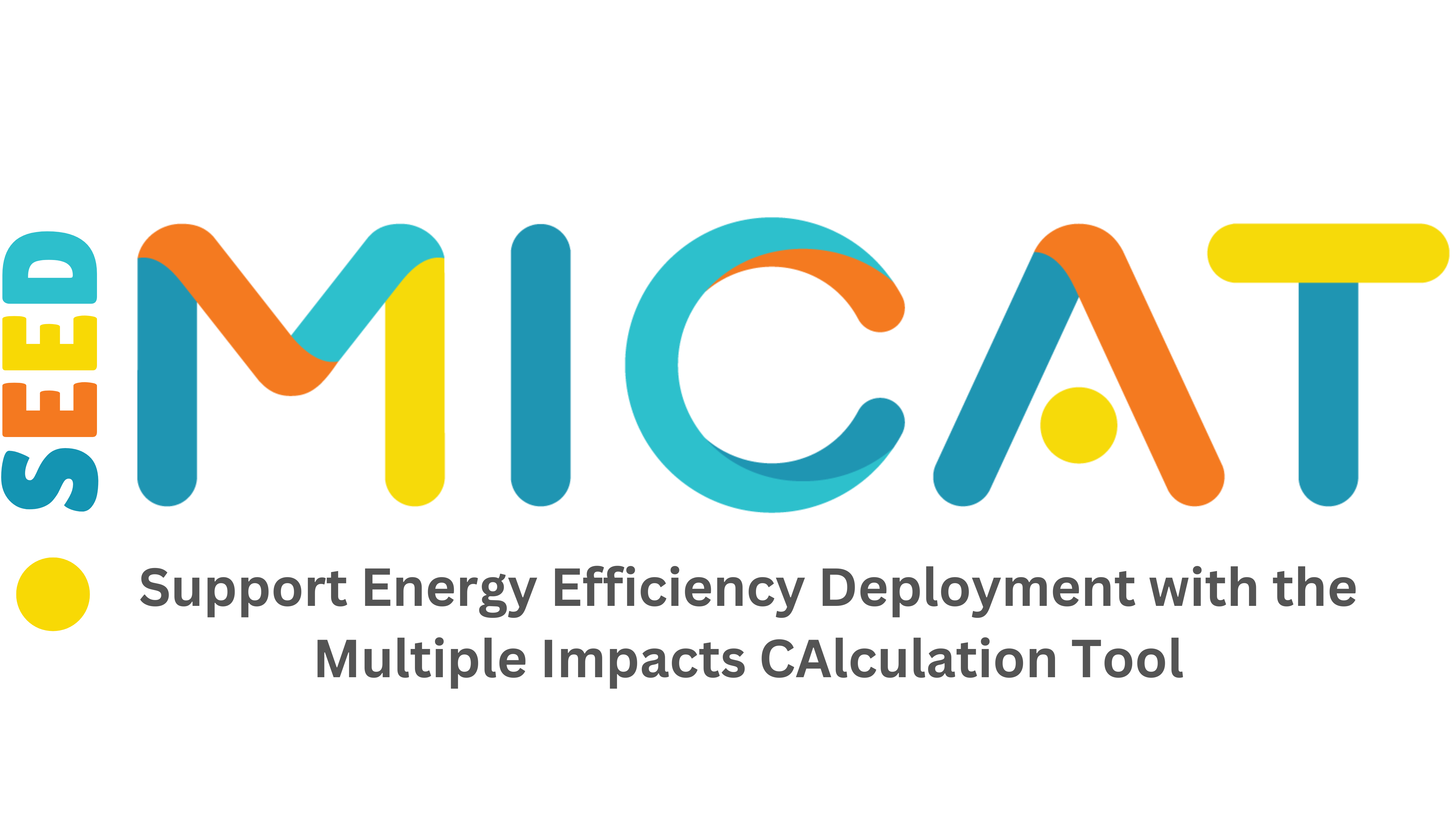SEED MICAT - Support Energy Efficiency Deployment with the Multiple Impacts CAlculation Tool
SEED MICAT - Support Energy Efficiency Deployment with the Multiple Impacts CAlculation Tool, aims to help EU and member states at national, regional and local governance levels in including Multiple Impacts (MI) in their implementation of the Energy Efficiency First (EE1) principle. Basing this on strong and reliable analytical tools, "sowing thus the seeds" for a broad application of the principle.
Considering MI in target setting argues for a fast phase-out of fossil fuels but also for a careful analysis of MI related to different pathways to climate neutrality, with varying contributions from energy demand and energy supply options.
Therefore, the project extends its MI framework to include renewable energy sources, advocates integrating policy modules, and showcases how it applies at different levels. SEED MICAT also includes replication analysis, capacity building, and a strong dissemination approach to promote knowledge on implementing the EE1 principle.

